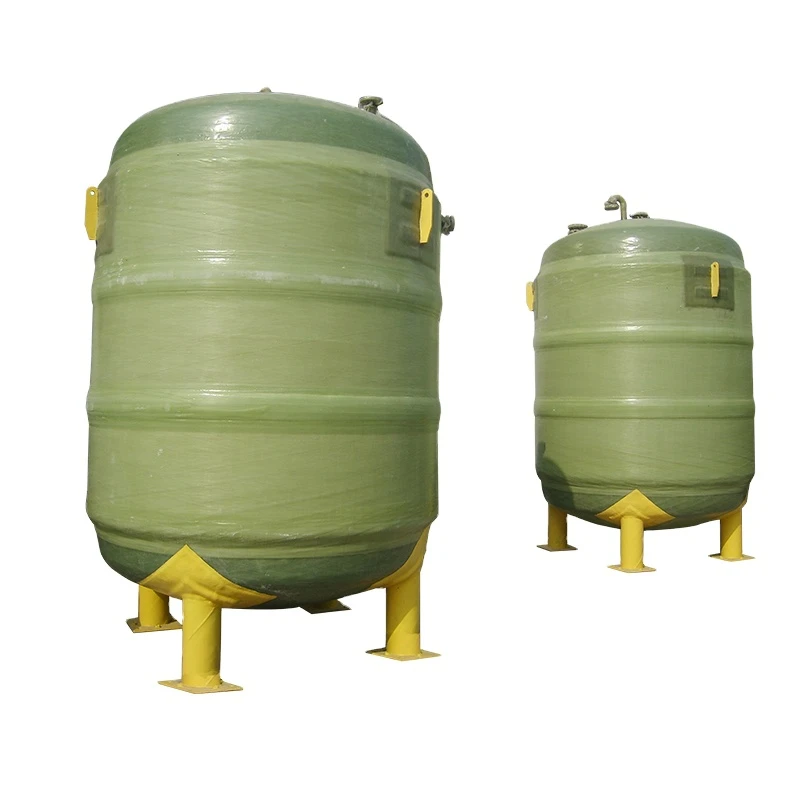Fiberglass Reinforced Plastic (FRP) absorption towers have become an essential component in various industrial applications due to their superior chemical resistance, mechanical strength, and versatility. These towers are primarily used in the treatment of industrial gas emissions, effectively removing pollutants and ensuring that industries meet stringent environmental regulations. For businesses looking to invest in effective and reliable industrial solutions, understanding the advantages of FRP absorption towers is crucial.

FRP absorption towers are engineered to handle the harshest of chemical environments. Their construction materials provide exceptional resistance to corrosive substances, a feature that significantly extends the lifespan of the equipment compared to traditional materials like stainless steel or carbon steel. This resistance is not only beneficial in terms of durability but also from an economic perspective, as it greatly reduces maintenance costs and downtime for repairs or replacements.
The design flexibility of FRP is another notable advantage. These towers can be customized in a variety of shapes and sizes to meet specific industrial requirements, making them adaptable to a wide range of applications. Whether dealing with sulfuric acid gases, ammonia, or other corrosive substances, FRP towers can be tailored to effectively neutralize emissions with precision.

Moreover, FRP absorption towers boast impressive structural integrity while being lightweight. This unique combination simplifies installation processes and reduces transportation costs. The lightweight nature of FRP does not compromise its strength; on the contrary, it lends itself to creating complex structures that can withstand high pressures and varying environmental conditions.
In terms of operational efficiency, FRP towers are designed to optimize the contact area between the scrubbing liquid and gases, enhancing the absorption process. This efficiency ensures that pollutants are effectively removed, contributing to cleaner emissions and a healthier environment. Industries such as chemical manufacturing, petroleum refining, and wastewater treatment have reported significant improvements in emission reductions after implementing FRP tower systems.
frp absorption tower
Safety is paramount in any industrial setting, and FRP absorption towers are built with this in mind. They are resistant to fire and can be designed to withstand seismic activities, ensuring continuous operation even in challenging situations. Their non-conductive nature also provides added safety in environments where electrical hazards are a concern.
When it comes to choosing a provider for FRP absorption towers, it is vital to consider expertise and authority in the field. Partnering with manufacturers who have a proven track record and extensive experience ensures not only the quality of the product but also the reliability of after-sales support. Look for companies that offer comprehensive services, from initial design and engineering to installation and ongoing maintenance.
Certifications and compliance with international standards can further enhance the trustworthiness of an FRP absorption tower provider. Companies that adhere to ISO standards, for example, demonstrate a commitment to quality and continuous improvement, offering peace of mind to buyers.
Finally, leveraging first-hand experiences and reviews from other industries can be immensely valuable. Many businesses that have transitioned to FRP absorption towers have shared testimonials reporting positive impacts on both their operations and their environmental footprint. These real-world insights can guide potential buyers in making informed decisions.
In conclusion, FRP absorption towers are a wise investment for industries looking to improve their emissions management systems. The balance of durability, adaptability, efficiency, and safety makes them a superior choice over more traditional materials. With the right expertise and a trustworthy provider, businesses can ensure they are not only meeting regulatory requirements but also contributing to a more sustainable future.




